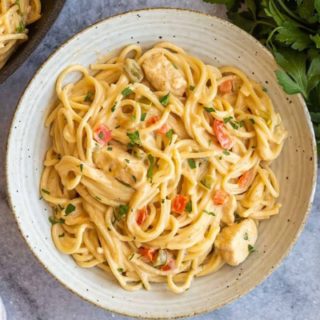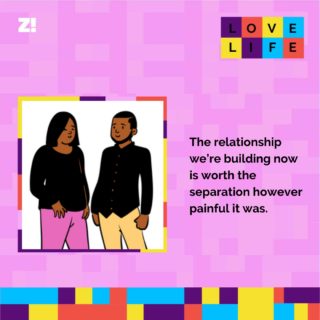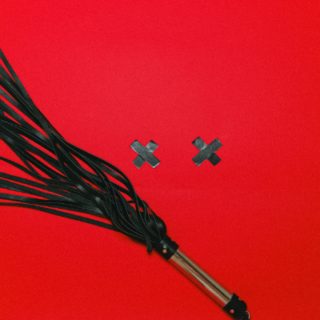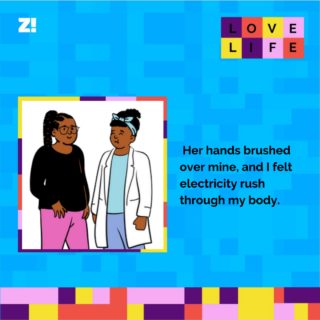Feminism is a diverse movement that aims to liberate women and other oppressed groups. Each feminist’s path is different from the next. In this article, I asked eight Nigerian women why they became feminists, and here’s what they had to say:
Kay, 26
I was a feminist even before I knew what the word meant. Growing up, I used to question societal norms because I wasn’t okay with “That’s how things are done” or “It’s a man’s world”. After I got married, I started having issues with my husband because I wanted him to treat me the way he would want to be treated. He couldn’t take what he gave me. He was the one that helped me realize that I am a feminist. We were fighting one day and he blurted out, “You are just a fucking feminist!” I had been hearing and seeing the word around but I didn’t know the meaning.
After that fight, I started reading feminist materials and I was so happy to find a word for everything I had been feeling.
Tomi, 24
I have always been a feminist.I grew up in Northern Nigeria and I watched small girls get married off to grown men and I hated everything about it. I didn’t realize I was a feminist till 2018 when I read an article from Chimamanda. Since I have been carrying women’s issues on my head like gala.
Bisola, 22
I was 15 and in secondary school when I found Chimamanda’s Purple Hibiscus in my school’s library. I loved the book so much that I turned to the back cover to read about the author. There, it was stated that she’s a feminist. I checked the meaning of the word and thought “Who doesn’t believe that men and women are equal? That means I am also a feminist!” From that day, I started identifying as one and made it a duty to advocate for women’s rights like Chimamanda.
Amaka, 21
I think it dawned on me that I am a feminist when we travelled home to my father’s family. Every single thing those people said was unfair to women and they called it tradition. My mum had a minor surgery just before we travelled so the brunt of the work fell on me as the first child. I would refuse to do the things I didn’t want to do. I hated that they would listen to my brother, who I am older than with three years before listening to me. I didn’t want to be pounding yam while men drank. I told my parents I didn’t want any of it. They call me an ogbanje because of how outspoken I am. I don’t care as long as I am choosing myself.
I started reading about women’s rights and I found the word feminism. Initially I didn’t want to call myself a feminist because of the stigma attached to it. But I eventually did and became an ally to other marginalized groups.
Aisha, 31
I have always been a feminist but I didn’t know the word for it until I became an adult. As a child, I found gender roles ridiculous and always campaigned for equality. I watched women shrink themselves and tolerate rubbish from their husbands and husbands’ brothers. ven as a child, I knew it was unfair. I swore it would never be my portion, not realizing the struggles I would face rebelling against that as an adult.
Women are and do so much — the continuity of humanity literally depends on women, yet they’re given second-class treatment? How could that ever sit well with me? Or anyone? I had to be a feminist. Anything less is unimaginable. We die here.
Uche, 25
Identifying as a feminist was inevitable for me because I was a rebellious child. I always did C when everyone else was doing A, and it was always different from what was expected of me as a woman. I heard things like “As a woman you need to learn how to cook for your family” when I was only 6. Those expectations felt like confinement. I first saw the word feminism in university. It was the first day of orientation and a girl, who later became my best friend, was upset at a school policy that involved expelling students that got pregnant while in school. I couldn’t understand why she was angry. She explained to me what a woman decides to do with her body is her choice and what they are really punishing is the audacity of a single woman to be pregnant. It blew my mind. I started to think about the other ways the African society oppresses women. I became a feminist after that. I embraced my rebellion, and I found a community of feminists that didn’t make me look odd for not wanting to conform.
Ivie, 24
I became a feminist because the misogyny in my family was too much. Men are allowed to do what they want but when women want to do their own, it’s a disgrace to the family. First time I got my period, I had menstrual cramps. My uncle told me to stop acting like a baby because I was crying. Before my mum died, she would tell me that I’m supposed to be better than my brother at chores because I am a woman. It used to annoy me. I became a feminist in my first year of university. My feminism was birthed out of the frustration of Igbo women. Igbo culture suffocates women. If not for civilization, e for don be. I call myself a Christian Feminist. There is misogyny in the church but people try to justify it as the word of God. God can never treat you less because you are a woman. I know He loves us all equally.
Tos, 19
I have been misogynistic in the past. There was this girl I knew who was vocally feminist and I used to insult her for it. Now, I cringe when I think about it. My journey to feminism started when I joined Twitter. I would see tweets pointing out the injustices against women and it made sense to me. Now, I am a radical feminist and my views surprise many people, including other feminists.

Subscribe to our newsletter here.




